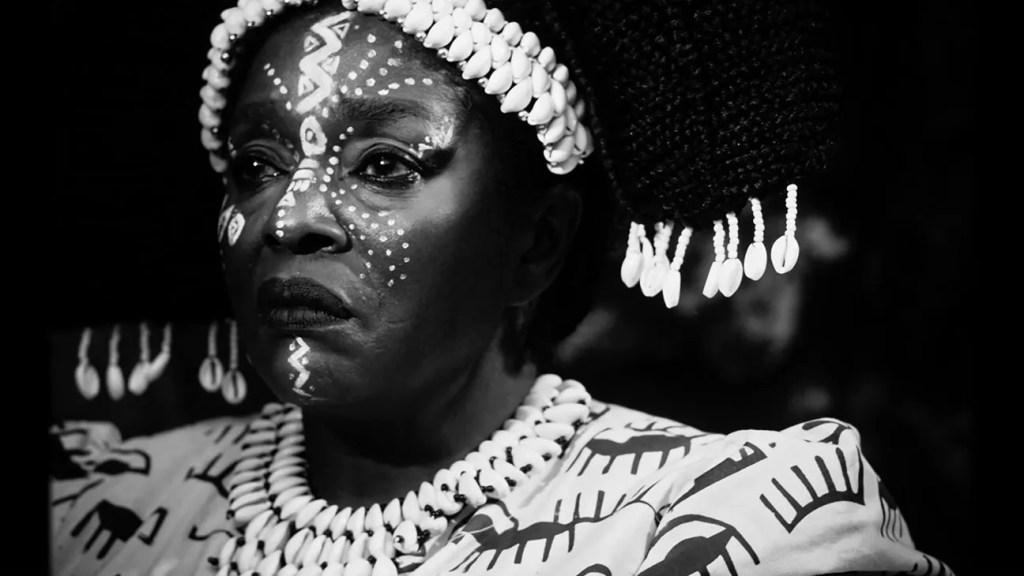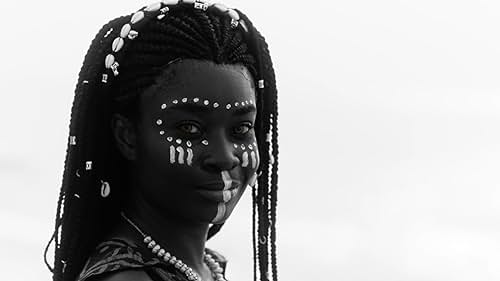C.J. Obasi’s Mami Wata, explores themes of tradition, mysticism and modernity in a beautifully shot black and white film.

Named after the water goddess worshipped in parts of Africa, the film is set in a small village known as Iyi. Led by intermediary Mama Efe and her two daughters, Prisca and Zinwe, their faith to the water goddess is put under pressure by internal forces and a stranger known as Jasper. Zinwe and Prisca both question their mother’s intentions, with Zinwe having no desire on becoming the next intermediary, and Prisca determined to bring scientific advancement to her village through vaccines and infrastructure.

Animosity grows from Mama Efe’s lack of power, and doubt of Mami Wata’s existence leads to a group in the village to revolt against the family. When the village’s harmony is threatened, Prisca harnesses the forces of Mami Wata to restore peace. The clash between tradition and modernity are central forces in this story. Prisca is the central figure in the film. Despite her devotion to her village’s traditions and Mami Wata, she enjoys riding around on her motorbike, drinking and partying. Prisca represents many things in the film, including the ways that tradition and modernity can co-exist.

Mami Wata is a gorgeous film, made up of high contrast black and white scenes. This black and white really makes the ending pop, when we’re revealed with pops of color and glitter. The makeup and costume designs are beautiful, leading to breathtaking scenes. Likewise, Evelyne Ily as Prisca is a force to be reckoned with, playing a powerful, playful and beautiful character all at once. Emeka Amakaeze as Jasper was also particularly great as a surprising villain. Overall, Mami Wata is filled with beautiful scenes, and is an interesting take on tradition, modernity, and power.
We give Mami Wata a 4/5.

